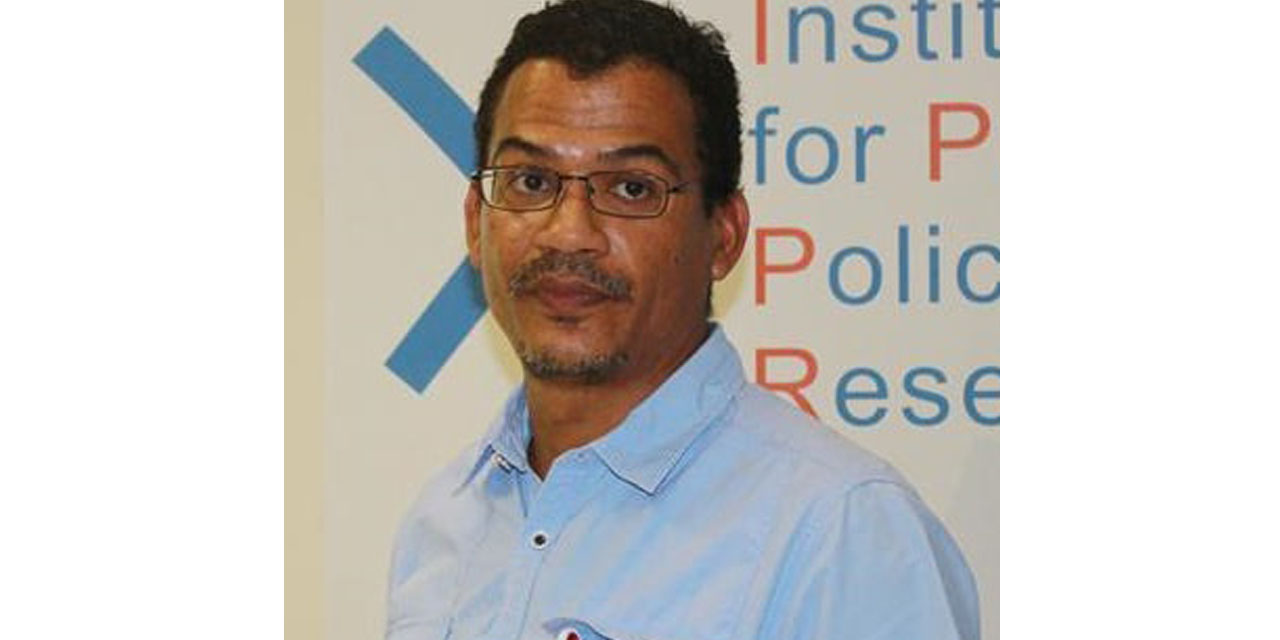Martin Endjala
The Institute for Public Policy Research (IPPR) is calling for full autonomy to be accorded to the Procurement Policy Unit in order for it to have the power in holding individuals and entities accountable.
The current limitations when it comes to accountability, according to IPPR Researcher Frederico Links have caused a spike in abnormalities and the unit is proving to be weak as far as holding entities, particularly in the procurement industry accountable.
Links was speaking at the launch of the Procurement Tracker Namibia today in Windhoek, where he said that following the occurrences on the public procurement landscape, it has become clear that the unit has serious shortcomings in terms of investigative capacities and capabilities.
IPPR is proposing that the Procurement Policy Unit transforms into a stand-alone public procurement-focused law enforcement agency, with the Head employed at the Executive Director level.
“Its law enforcement agency should considerably change beyond just producing reports that are forwarded to the police and Anti-Corruption Commission. A comprehensive framework of regular declaration of assets, interests and liabilities within the public
sector must be devised and implemented with an appropriate oversight mechanism, as proposed by the United Nation Convention Against Corruption (UNCAC),” Links added.
Links singled out the recent cancellation of health and services tenders by the Central Procurement Board as one of the indicative factors of a weak public policy unit, as well as the state of the art building of the Namibia Students Financial Assistance Fund, which he stressed attracted a lot of public scrutiny.
“The law further states that if in the discharge of non-compliance the PPU finds that there has been non-compliance with any provision of the Act, directives, code of procedures or guidelines made under this act, the Finance Minister may refer any matter of non-compliances to the Namibian Police, Anti-Corruption Commission or any other competent authority for investigation, when it thinks it is appropriate and must inform the public entity concerned,” Links stressed.
Based on this modality, Links believes that it must be reviewed so that the Procurement Policy Unity can assume full powers and not only hold entities accountable but also deal with them directly.
He further suggested that the unit should detach itself from the Ministry of Finance and Public Enterprise and only report to the National Assembly, to operate on a stand-alone basis, in order to do away with conflict of interest, in events where it must now investigate its own master.
“What do you do in an event that you as the Head of PPU reporting to the Minister of Finance, are tasked to investigate your own boss? It becomes really hard, as you are now faced with a dilemma of
your loyalty being tested. To avoid such scenarios, I am of the view that the National Assembly is the right body to report to”, Links opined.
Meanwhile, a representative for the Procurement Policy Unit, reiterated that changing laws is not a cheap process as it involves many stakeholders and that it is a lengthy process. He however said he is in full support of the proposed intervention to give full power to the Public Procurement Unit.
He also indicated, that they are currently consulting around and designing investigation tools and guidelines for compliance probe, as well as bending some of the limitations to better suit the unit. This, he said will strengthen the unit in carrying out its duties.




